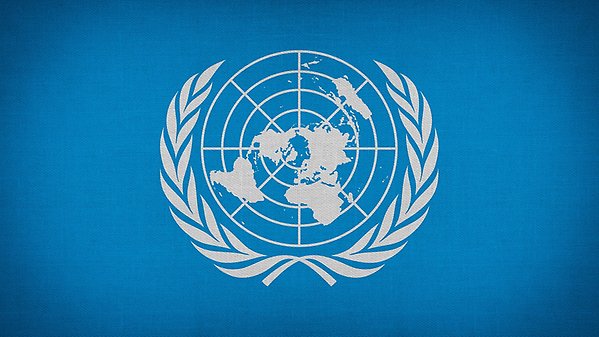Master Programme in Peace and Conflict Studies

120 credits
Why is there armed conflict? How do we reach sustainable peace? Peace and Conflict Studies is a young research field addressing crucial issues in a troubled world. The Master's Programme in Peace and Conflict Studies gives you a broad skill-set with specialised knowledge in conflict management and peacebuilding at both a national and global level.
The Programme has a distinct international character and it prepares graduates for a professional career as analysts or researchers in both the private and public sector, both nationally and internationally. The degree qualifies graduates to apply for doctoral studies in Peace and Conflict Studies or International Relations. The Swedish National Agency for Higher Education concluded in its 2012 national evaluation of higher education that the education at the Master programme is of highest quality, receiving the highest mark available on all criteria for evaluation.
Application periods
There are two application periods for the Master's Programme in Peace and Conflict Studies. For the international admission round, you need to apply through the national applications system run by University Admissions in Sweden. This is done at the website www.universityadmissions.se. It is only possible to submit an application during the two official admission rounds. Follow this step-by-step guide to ensure you submit a complete application.
Learn more about the master programme
Find information about eligibility and programme-specific documents you need to submit.
Timeline
Year 1
Autumn term
The fall term (Term 1) consists of Causes of War (15 credits) and Methods (15 credits), which run in parallel. Causes of War is a core course that gives a first specialisation in Peace and Conflict Studies. There are two alternative Methods tracks. The main option is to enrol in Methods I (7,5 credits) followed by Methods II (7,5 credits). Students with significant knowledge in statistical analysis can enrol in an alternative option of Methods I followed by Methods II, Advanced (7,5 credits). Students who take the alternative option in Term 1 have the possibility to enroll in Forecasting Methods and Causal Inference for the Social Sciences as an elective course in Term 2.
Spring term
In the spring term (Term 2), students begin by studying International Conflict Resolution (15 credits), which focuses on how conflict parties move from violent interactions to durable peace. Having studied both the causes of war (in the autumn) and international conflict resolution (in the spring), our Master's students have a firm basis to stand on and now choose two out of the various elective courses offered for the remaining 10 weeks of the spring. The aim is to give students the opportunity to study courses of their particular interest, in greater depth and breadth.
Students wishing to conclude their studies with a one-year’s Master’s degree in Peace and Conflict Studies take International Conflict Resolution in the first half of Term 2 and write an essay during the second half of the term (15 credits).
Year 2
Autumn term
Students may devote the third term to gaining practical experience as an intern in an international organisation, private company or governmental institution in Sweden or abroad for all or half of the semester (30 or 15 credits). Alternatively, students can choose to take elective courses offered by the Department or other departments at Uppsala University.
Spring term
The fourth term is devoted entirely to a degree project: The Master's Thesis course (30 credits).
Courses
Courses offered by the Department of Peace and Conflict Research for the Master's Programme in Peace and Conflict Studies. Note that changes may occur.
Compulsory courses
- Causes of War (15 credits)
- Methods I (7.5 credits)
- Methods II (7.5 credits) or Methods II Advanced (7.5 credits)
- Master's Thesis (30 credits)
Elective courses
Second term
- Research Ethics (7.5 credits)
- International Conflict Resolution (15 credits)
- Negotiation and Mediation in Practice (7.5 credits)
- Forecasting Methods and Causal Inference for the Social Sciences (7.5 credits)
- International Interventions and Protection of Civilians (7.5 credits)
- Causes of Peace (7.5 credits)
- Gender, War and Peace (7.5 credits)
- Emerging Security Threats (7.5 credits)
- Advanced Qualitative Methods (7.5 credits)
Third term
- War and Development (7.5 credits)
- Peace from Below (7.5 credits)
- Socio Psychological Foundations of Intergroup Conflict (7.5 credits)
- Non-Violent Conflicts: Causes, Strategies, and Outcomes (7.5 credits)
- War and Peace on Film (7.5 credits)
- Reviewing a Research Field (7.5 credits)
- Internship in Peace and Conflict Studies (30 credits)
- Internship in Peace and Conflict Studies (15 credits)
Contact
Ms. Ingalill Blad Ögren
Programme Administrator
E-mail: ingalill.blad-ogren@pcr.uu.se
Phone: +46 (0)18 471 23 49
Ms. Liana Lopes
Programme Coordinator
E-mail: liana.lopes@pcr.uu.se
Phone: +46 (0) 18 471 23 77
